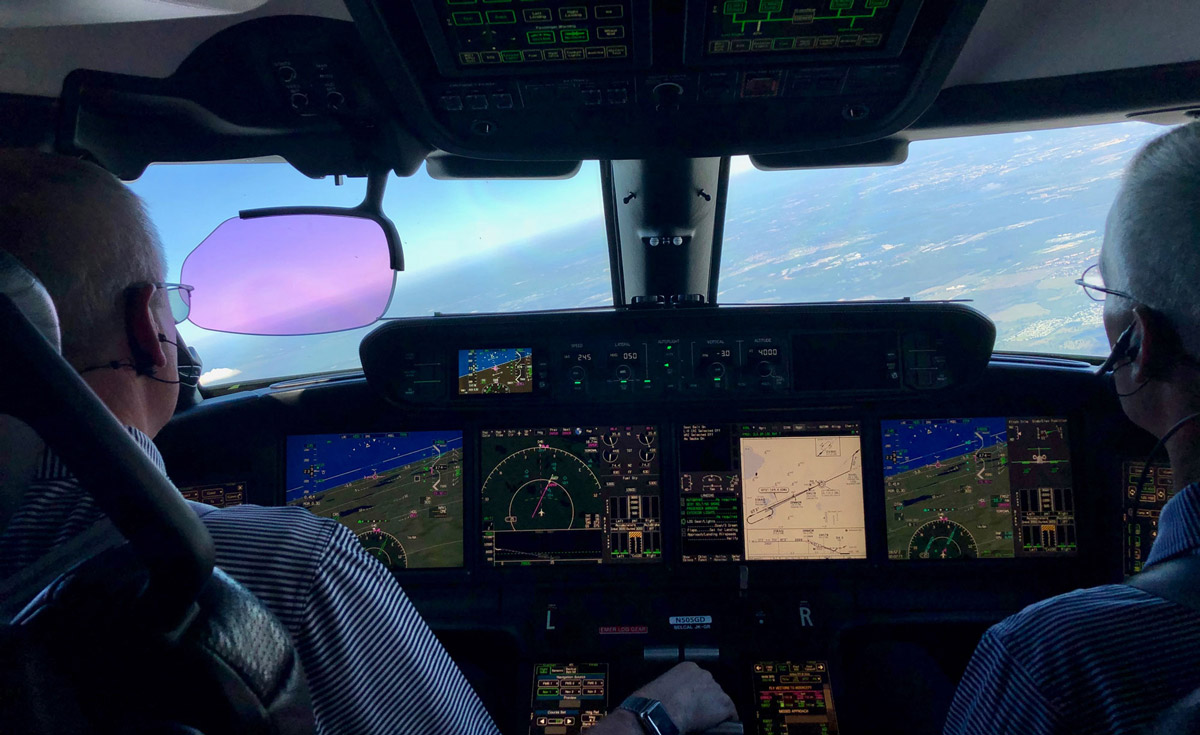As the aviation industry grapples with pilot shortages, the private charter sector is taking taking centre stage.

The aviation industry has long been the epitome of innovation, connecting people across the globe with speed and efficiency. However, as the industry continues to evolve, it faces an increasingly pressing challenge – a shortage of qualified pilots.
While the commercial aviation sector has been grappling with this issue for years, the private charter sector is now also feeling the impact of the pilot shortage. Indeed, the business jet market grew from $22.38b in 2022 to $22.58b in 2023 with an annual growth rate of 2.3 per cent, demonstrating a steady increase in the industry.
This growth is likely to attract more investors and customers, leading to further growth and development. The number of active private jets increased to 21,979 in 2019 and is projected to increase further with the sale of 6,362 new jets worth $217.5b from 2020-2029.
Private jet travel is experiencing a renaissance, with a growing number of affluent individuals, executives and even celebrities opting for the comfort, convenience and privacy that private jets provide. The allure of avoiding crowded airports, bypassing security lines and setting one’s own schedule has fuelled a surge in demand for private jet charters.
This trend has been further accelerated by the ongoing global health crisis, which has underscored the importance of safe and controlled travel environments.
Lukas Petrauskas, KlasJet’s chief commercial officer, said: “The private charter sector has become a haven for those seeking a personalised and secure travel experience, giving rise to an unprecedented demand for flight crews.”
In fact, the private jet charter sector’s burgeoning demand for flight crew stands as a testament to the industry’s remarkable ability to adapt and thrive amidst challenges. As the pilot shortage persists, private charter companies continue to devise innovative solutions to attract and retain talent.
This surge in demand has led to a corresponding rise in the number of private jet charter companies, all vying for a share of this lucrative market. The appeal of avoiding the hassles of commercial air travel, coupled with the potential for enhanced productivity and privacy, has led to a surge in demand for private jet charters furthering its significant transformation and expanding its horizons to cater to a wider clientele.
This trend is evident in the growth statistics of companies like KlasJet. Lukas Petrauskas added that “as the private charter market continues to flourish, the demand for qualified flight crew is becoming a critical concern.”
This supports the overall change in the industry as the allure of private jet travel shows no signs of waning. The flight crew will remain at the heart of shaping this transformative journey.
However, as the private charter sector expands, it is confronted with an unforeseen hurdle – the shortage of qualified pilots. As the demand for private charters continues to soar, the need for skilled pilots is a paramount concern.
Further, the shortage of experienced pilots has put pressure on pilot training programmes. Airlines and private jet companies are investing heavily in training facilities and partnerships with flight schools to expedite the training process.
Ensuring a steady supply of skilled pilots is essential to maintain safety, quality and efficiency in the private jet industry, propelling the private charter sector to new heights. As the aviation landscape continues to evolve, collaboration between regulatory bodies and training institutions is imperative.
Initiatives aimed at attracting new talent to the aviation field, streamlining pilot certification processes and providing incentives for experienced pilots to remain in the industry are essential steps toward alleviating the shortage and will be crucial in securing the future of private jet travel.

